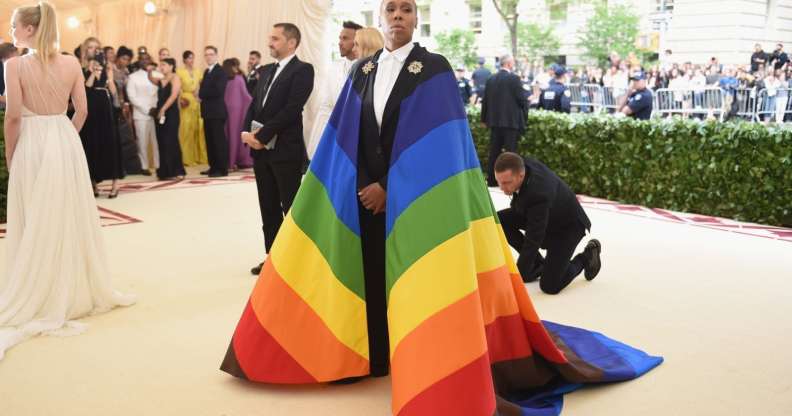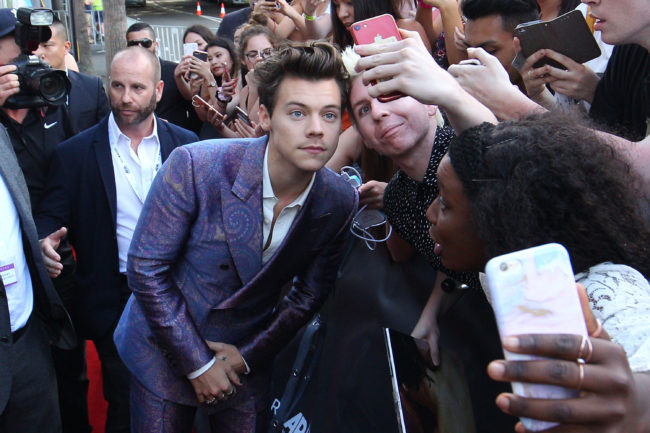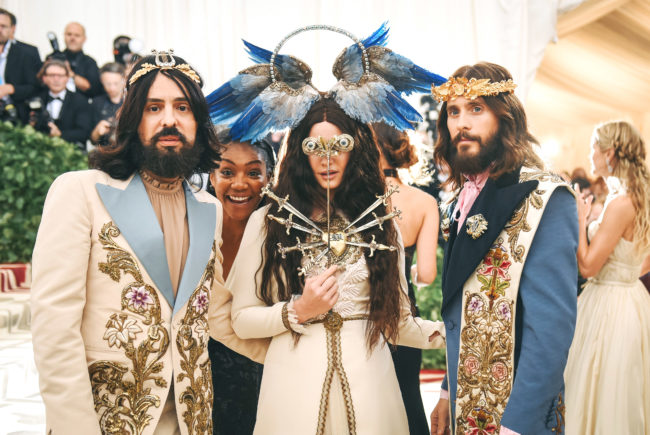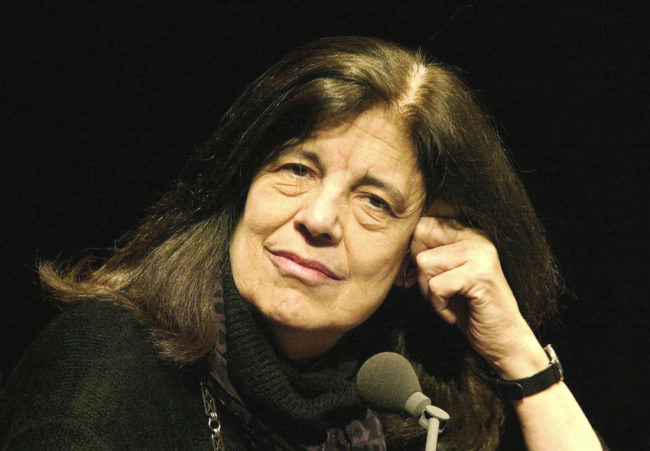The Met Gala 2019 is going to be the gayest yet

Image: Jason Kempin/Getty
The theme and organisers of the 2019 Met Gala have been announced and all signs indicate this is going to be the gayest edition of the annual event to date.
The Metropolitan Museum of Art announced that its 2019 Costume Institute exhibition, which is traditionally inaugurated with a star-studded gala on the first Monday of May, will have the theme: “Camp: Notes on Fashion”—a reference to American author’s Susan Sontag’s 58-page essay Notes on ‘Camp,’ published in 1964.
The gala will be chaired as usual by Vogue editor-in-chief Anna Wintour, who will be joined by singer Harry Styles, performer Lady Gaga and tennis champion Serena Williams as co-chairs.

Harry Styles is the face of Gucci’s latest campaign. (Lisa Maree Williams/Getty)
Costume Institute curator Andrew Bolton said the theme perfectly match the current socio-political moment.
“We are going through an extreme camp moment, and it felt very relevant to the cultural conversation to look at what is often dismissed as empty frivolity but can be actually a very sophisticated and powerful political tool, especially for marginalised cultures,” he said, quoted in the New York Times.
“Whether it’s pop camp, queer camp, high camp or political camp—Trump is a very camp figure—I think it’s very timely,” he added.
The exhibition will be underwritten by Gucci, where creative director Alessandro Michele has spearheaded a much-appraised artistic direction since he joined the label in 2015.
Michele’s Gucci has provided some of the most eye-catching outfits at past Met Gala events—including last year’s memorable Jesus-like outfit worn by singer and actor Jared Leto.

Gucci’s creative director Alessandro Michele, singer Lana del Rey and performer Jared Leto attend the 2018 Met Gala. (Jason Kempin/Getty)
Michele has also worked closely with Styles, the face of Gucci’s 2018 pre-fall advertising campaign and the proud owner of the iconic Gucci rainbow loafers the singer donated to a raffle raising money for the UK’s oldest LGBT+ charity, London Friend, in July.
Gucci also designed one of the most stunning outfits worn by Lady Gaga’s character Ally in her new film A Star is Born, as Fashionista reported.
Michele told the Times the exhibition will seek to reclaim the word “camp” because “there are frequently huge misunderstandings about the real meaning of this word.”
“Camp really means the unique ability of combining high art and pop culture; it is not kitsch. The Met exhibition will give contemporary significance to Sontag’s perspective,” he added.

American writer, critic and playwright Susan Sontag wrote the treaty “Notes on Camp” in 1964. (Jens-Ulrich Koch/AFP/Getty)
In part of the essay, Sontag—who said she had been in love nine times, “five women, four men,” and was in a relationship with photographer Annie Leibovitz from 1989 until her death in 2004—explicitly addressed the relationship between the LGBT+ community and the camp style.
“The peculiar relation between Camp taste and homosexuality has to be explained. While it’s not true that Camp taste is homosexual taste, there is no doubt a peculiar affinity and overlap,” she wrote.
“Even though homosexuals have been its vanguard, Camp taste is much more than homosexual taste. Obviously, its metaphor of life as theater is peculiarly suited as a justification and projection of a certain aspect of the situation of homosexuals. (The Camp insistence on not being ‘serious,’ on playing, also connects with the homosexual’s desire to remain youthful.) Yet one feels that if homosexuals hadn’t more or less invented Camp, someone else would.”

